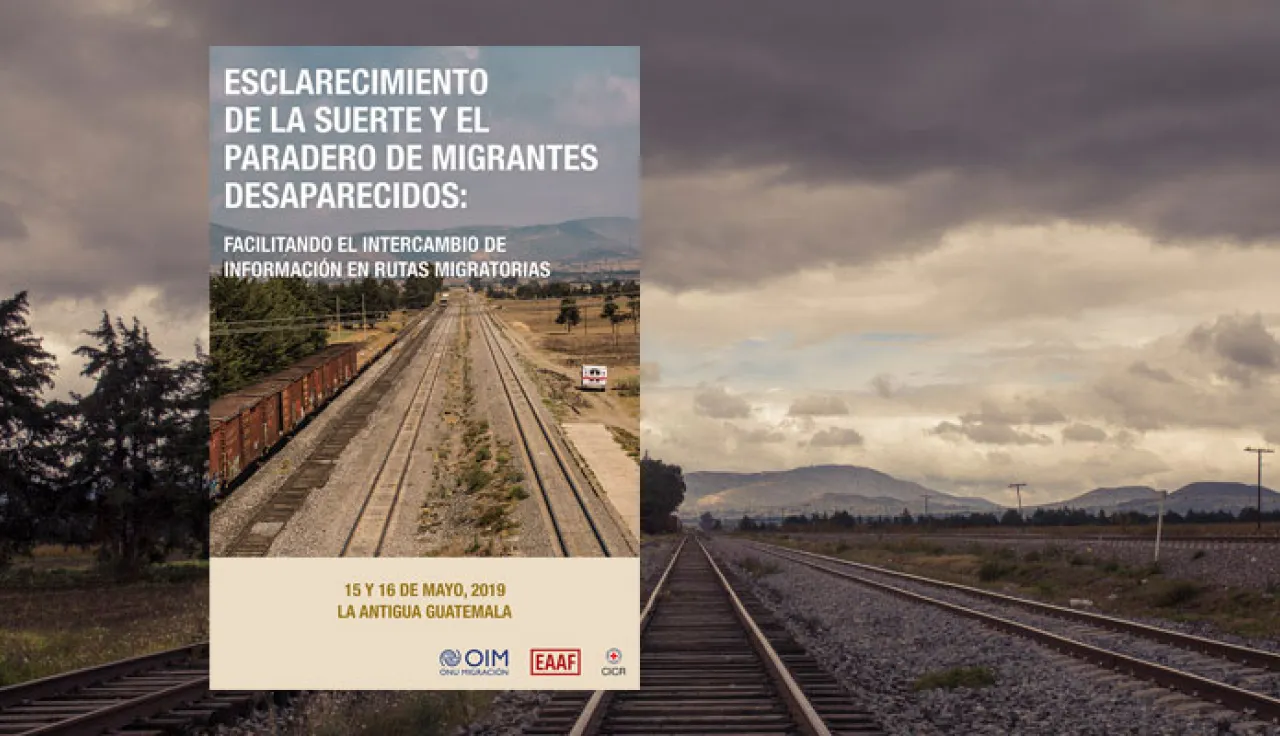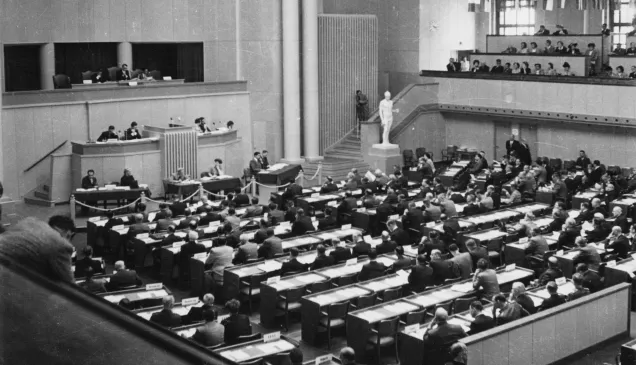Driving a worldwide effort to better tackle the issue of missing people

Armed conflicts, violence, disasters and migration all result in people going missing
An international workshop titled Clarifying the Fate and Whereabouts of Missing Migrants: Exchanging Information along Migratory Routes took place on 15 and 16 May 2019 in Antigua Guatemala, Guatemala, organized by the International Committee of the Red Cross (ICRC) in cooperation with the International Organization for Migration and the Argentine Forensic Anthropology Team.
"Around the world, the families of tens of thousands of missing migrants are looking for answers. Using the ICRC's long-standing expertise in helping the missing and their loved ones, we want to strengthen collaboration among existing initiatives and improve international action on this tragic reality," underlines Caroline Douilliez, head of project at the ICRC.
The workshop will bring together experts and representatives from governmental agencies and inter- and non-governmental organizations, as well as the families of missing migrants, from around the world. The aim of the event is to draw on current initiatives in Central America and other regions in order to develop common technical standards for collecting and exchanging data on missing migrants for humanitarian purposes.
Using the ICRC's long-standing expertise in helping the missing and their loved ones, we want to strengthen collaboration among existing initiatives and improve international action on this tragic reality
"Migration – and migrants going missing – is an everyday reality. We urgently need to create dynamic and efficient regional systems to search for the missing in a way that is both rapid and respectful of their dignity," says Mercedes Doretti, coordinator of the Argentine Forensic Anthropology Team's Border Project, a network of governmental and non-governmental organizations and institutions that collects and exchanges data on the people who go missing along the Central America–Mexico–United States migrant corridor.
Learning when, where, how and how many migrants disappear can help illuminate what makes migration unsafe and who is most at risk. But this kind of information is currently scarce, a testament to how this issue and the people it most affects have been neglected. Coordinated data collection is key to tackling the complex challenge of searching for missing migrants along routes that often traverse not just countries but continents.
"Much progress is needed to help families find out what has happened to their missing loved ones, and organizations must work together to do as much as possible to address this challenge," says Frank Laczko, director of the International Organization for Migration's Global Migration Data Analysis Centre, which runs the organization's Missing Migrants Project.
A common effort
The workshop is part of the ICRC's Missing Persons Project, a four-year initiative to improve the worldwide response to people who have gone missing owing to armed conflict, internal violence, natural disasters and migration by creating a global community of practice and common technical standards. It aims at creating a community of practitioners, experts, institutions, States and families involved in tackling crucial questions about missing people (see box). The objective is to compare experiences, share information and advice, and develop technical standards and best practice that can be applied anywhere in the world.
Crucial questions
What are the most effective ways to collect and manage information about where missing people might be and what has happened to them?
How can we best deliver the psychosocial, legal and financial support that missing people’s families need?
What forensic standards and best practice can help us better analyse and identify mortal remains and solve missing person cases?
How can we prevent migrants from going missing, and how can we find, share and analyse relevant data to help us find them when they do?
For further information on the event, please contact:
Alberto Cabezas, CICR
México and Guatemala
tel.: (mob. MEX) +5215545258 361 and (mob. GUA) (+502) 3153 0735
Join us
If you would like to join the community and help improve efforts to prevent and solve missing person cases, please write to us at: missingpersonsproject@icrc.org



